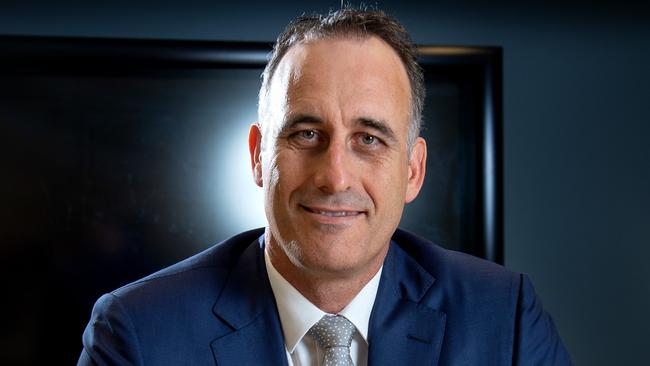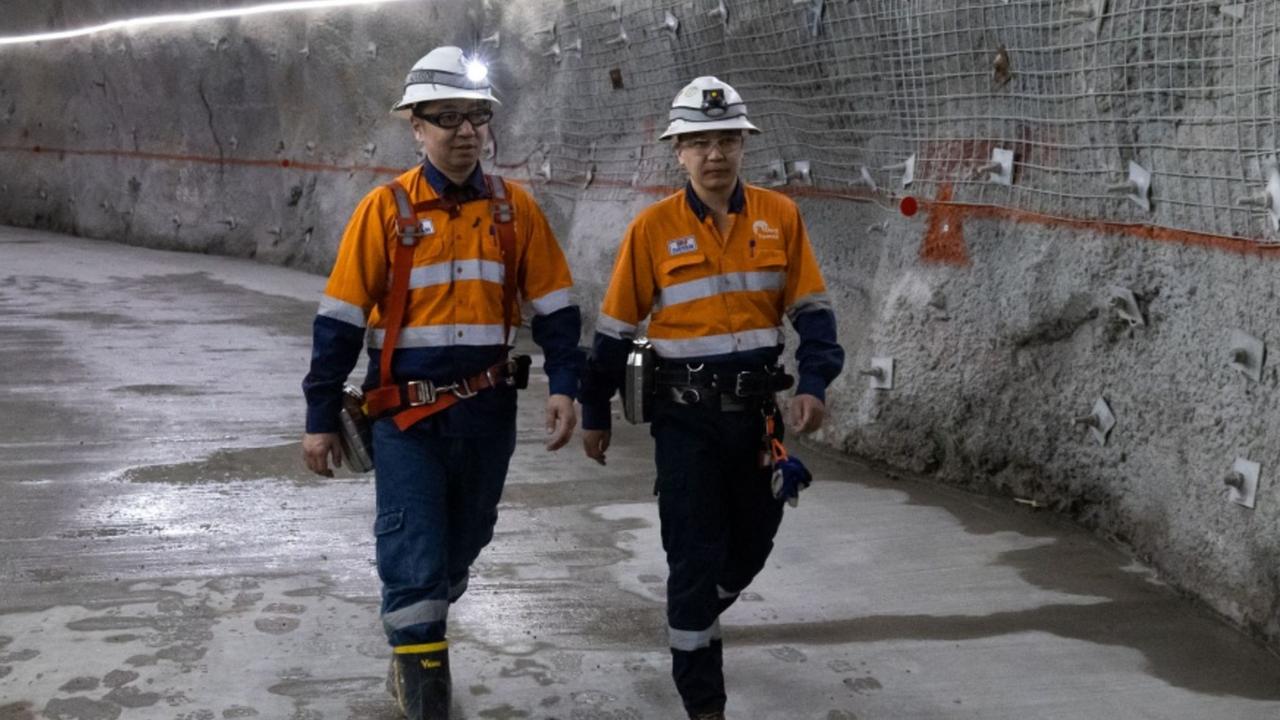Wesfarmers execs take cuts to remuneration
The boss of Bunnings is one of a number of executives to take a pay cut in the wake of Wesfarmers’ failed UK strategy.

A number of Wesfarmers’ most senior executives have suffered significant cuts to their remuneration, while outgoing chief executive Richard Goyder and his CFO Terry Bowen have had some of their bonuses clipped in the wake of the Bunnings UK misfire.
Recently-appointed Bunnings boss Michael Schneider was singled out in the latest Wesfarmers annual report, released today, to have not met a series of financial targets in relation to Bunnings UK and as such wasn’t given benefits linked to this.
Meanwhile Guy Russo, who is leaving after successfully turning around Kmart to make it one of the company’s best performing retail arms, has cemented his position as one of the highest-paid executives at Wesfarmers to almost eclipse the payout to new Wesfarmers CEO Rob Scott.
Earlier this year Mr Scott warned there would be a cut to bonuses and pay following the billions of dollars blown on the push into the UK by Bunnings, as the Wesfarmers executive team took responsibility for the failed strategy.
Wesfarmers’ annual report reveals some long-term incentives were cut, as were bonuses.
However, as former boss Mr Goyder and CFO Mr Bowen left late last year, it is difficult to measure how much of the smaller bonus package was because of the Bunnings UK mess and how much was a function of them departing Wesfarmers during the year.

While Bunnings’ Mr Schneider suffered because he did not meet any of the financial targets in relation to Bunnings UK, the annual report does give a big “tick” to Mr Scott for his handling of recent asset sales, as he restructures Wesfarmers’ businesses.
“Mr Scott achieved above-target results against both group NEAT and return on equity, excluding the profit from the sale of the Curragh coal mine, the loss on disposal of BUKI (Bunnings UK) and the non-cash impairments announced in February 2018 and including the operating losses from BUKI.”
According to the remuneration report, Mr Scott was paid a total of $6.55 million for 2018, up from $5.6m in 2017, although he did rise to be CEO in November. His long-term incentives were $1m higher for the year and his cash salary improved by $600,000.
The new Wesfarmers CFO, Anthony Gianotti, was paid $2.62m.
Mr Russo, who has been running Wesfarmers’ discount department stores Kmart and Target, was one of the highest paid executives and was almost paid more than Mr Scott. Mr Russo took home $5.47m in 2018, down from $6m in 2017.
The position as highest-paid Wesfarmers executive often went to the CEO of Coles, with the maiden boss of the supermarket chain under Wesfarmers, Ian McLeod, famously taking home more than $50m in his time.
Outgoing Coles boss John Durkan, who left the business on Friday, took a cut to his remuneration and was paid a total of $4.9m in 2018, down from $5.6m in 2017.
“Mr Durkan delivered on-target results for Coles in a highly competitive environment,’’ the report said.
However, the value of his short-term and long-term incentives was cut by more than 60 per cent during the year. It came at a time when Coles earnings suffered, its sales momentum slowed and rival Woolworths rebounded to report stronger like-for-like sales growth.

Mr Goyder, who stepped down as CEO of Wesfarmers late last year, saw his pay cut to $2.7m from $12m, while ex-CFO Mr Bowen took home $1.9m at his last year at Wesfarmers, down from $6.6m in 2017.
Wesfarmers also announced the retirement as a director of Paul Basset, who only joined the board in 2012 and is the co-founder of online employment website Seek Limited. He is a member of the remuneration and nomination committees.
Mr Bassat is a co-founder and director of Square Peg Capital, a venture capital fund that invests in early stage and growth stage technology companies. He is an Australian Football League Commissioner and also a director of the Peter MacCallum Cancer Foundation.
In his commentary to shareholders in the annual report, Mr Scott said 2018 was a year of change for the Perth-based conglomerate.
“This was a year of change for Wesfarmers, with good progress made to reposition the portfolio and ensure we have the right settings in place for sustained value creation,” he said.
“The changes we have made and those in progress have been guided by a steadfast commitment to our core objective to provide a satisfactory return to shareholders.
“The changes over the past year are evidence of the strength of the Wesfarmers model.
“Notably our capacity to move swiftly to manage our portfolio and the flexibility this provides for renewal. Further, our model of divisional autonomy provides our operating businesses with the ability to retain a laser-like focus on their customers and operations and deliver strong performance outcomes during times of change. “
In a few months Wesfarmers will demerge Coles in a $20 billion deal, and Mr Scott said he was looking for continued earnings growth from other retail businesses such as Bunnings, Kmart and Officeworks.
“We expect our retail businesses to deliver continued earnings growth through further investment and improvement in their customer offers, expanding their addressable markets and offering even better products and service. The focus of our industrials business will remain on improving safety and operational efficiency while evaluating new opportunities to leverage our capabilities and capital.
“We will continue to take a long-term view, retaining a strong balance sheet and capital discipline to enable us to take advantage of opportunities to create shareholder value if and when they arise.”




To join the conversation, please log in. Don't have an account? Register
Join the conversation, you are commenting as Logout